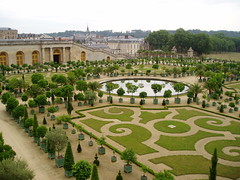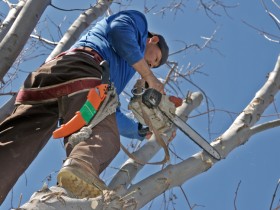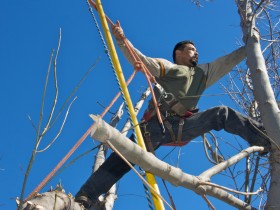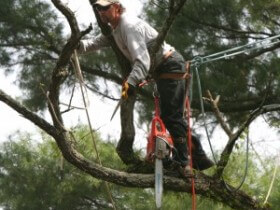You need to know some basics related to improving your garden for your family, your business, or simply yourself. Figure out all that you need so you are not wasting money on things you cannot plant in your garden.
So you don’t shock the plants, you should gradually get them use to a change in the temperature and conditions. Put them outdoors in the sun for no more than two hours the first day. Gradually increase the the time they spend outside over a one week period. By weeks end, you should have plants that are ready for a permanent home outside with no problem!
Some houseplants will resist their roots being disturbed, while others need to be re-potted. An easy way to test which plants require re-potting is to flip them over and tap on the pot until the moment the plant falls out with ease. If you see roots crowding the dirt the plant grows in, you will need to put the plant in a larger pot. If there is mainly dirt and not many roots, your plan is just fine in the current pot, and does not need to be replanted.
Get every last drop of value from your land. If you are looking for high returns, landscaping gets you a lot of your money back. When you invest into plants they can do a lot to your home, they can raise the resale value of your home by 20% and possibly more. Find plant materials for your landscape design that will thrive in your particular climate.
A touch of organic mulch will boost the potential of the vegetable plants in your garden. Mulch has a nice moisturizing effect on the soil it’s spread over. This also helps reduce the appearance of weeds. Your plants will receive extra water and nutrients, and you’ll spend less time dealing with weeds.
Coffee Grounds
If you learn that your soil has a high amount of alkaline, mix some used coffee grounds into it. Used coffee grounds will add acidity, helping to optimize the soil’s pH. You will discover that your vegetables are more flavorful than ever before.
Using rainwater to water your garden is good for your plants and good for the environment too. Almost any container, such as a barrel, is suitable to collect rain water. This will not only lower your water bill, it will conserve a natural resource too. Try this alternative to help save you money and keep your garden natural.
Use a plant for a focal point. A focal point can help direct a viewers gaze. Usually, the focal point will be a plant that is unique from the plants around it.
Be sure to weed your garden. Weeds can take over a healthy garden faster than you think. To help with the removal, you can use white vinegar. Weeds can be killed by white vinegar! Use a spray bottle full of white vinegar and you won’t have to use your hands.
Encourage the development of roots in larger plants, such as shrubs or trees, by planting them in the fall. The ground still remains warm in comparison to the air’s temperature, and since the plants don’t have any leaves to grow, their resources can be focused on the root system, so that you can have a stronger foundation.
Research, hard work, and some dedication are the main requirements. Your efforts will pay off when you experience the joy of watching something that you created grow.




